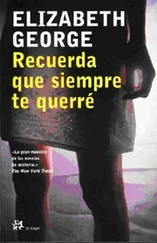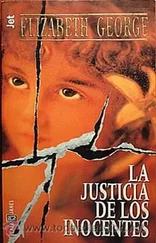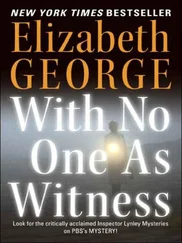Elizabeth George - I, Richard
Здесь есть возможность читать онлайн «Elizabeth George - I, Richard» весь текст электронной книги совершенно бесплатно (целиком полную версию без сокращений). В некоторых случаях можно слушать аудио, скачать через торрент в формате fb2 и присутствует краткое содержание. Жанр: Детектив, на английском языке. Описание произведения, (предисловие) а так же отзывы посетителей доступны на портале библиотеки ЛибКат.
- Название:I, Richard
- Автор:
- Жанр:
- Год:неизвестен
- ISBN:нет данных
- Рейтинг книги:3 / 5. Голосов: 1
-
Избранное:Добавить в избранное
- Отзывы:
-
Ваша оценка:
- 60
- 1
- 2
- 3
- 4
- 5
I, Richard: краткое содержание, описание и аннотация
Предлагаем к чтению аннотацию, описание, краткое содержание или предисловие (зависит от того, что написал сам автор книги «I, Richard»). Если вы не нашли необходимую информацию о книге — напишите в комментариях, мы постараемся отыскать её.
This volume contains three revised versions of Elizabeth George's short stories which were originally published under the title 'The Evidence Exposed'. Here there are also two new stories and an introduction by the author to all five stories of human weakness.
I, Richard — читать онлайн бесплатно полную книгу (весь текст) целиком
Ниже представлен текст книги, разбитый по страницам. Система сохранения места последней прочитанной страницы, позволяет с удобством читать онлайн бесплатно книгу «I, Richard», без необходимости каждый раз заново искать на чём Вы остановились. Поставьте закладку, и сможете в любой момент перейти на страницу, на которой закончили чтение.
Интервал:
Закладка:

Elizabeth George
I, Richard
© 2001
For Rob and Glenda
Introduction to Exposure
I first wrote this story for Sisters in Crime (Volume II), having been inspired to do so by taking two summer sessions at Cambridge University through a program offered by UCLA. The first session, in 1988, was called “The Country Houses of Great Britain,” and from it I took my initial inspiration for a story which I called “The Evidence Exposed.” The second session, in 1989, was a course on Shakespeare, and its curious and whimsical look at William Shakespeare as a closet Marxist-no matter the anachronous bent of such a look!-became part of the foundation for a novel I wrote called For the Sake of Elena, which was set in Cambridge.
“The Evidence Exposed” was my first attempt at a crime story in abbreviated form. It was also the first short story I'd written in about twenty years. As such, it was a noble effort, but I was never completely happy with it. Indeed, fairly soon after publication, I realized that I'd killed the wrong person, and it became my intention to rewrite the story if I ever had the chance to do so.
A lot of life supervened in the meantime. I always seemed to have other novels under contract, courses to teach, and research to do. Occasionally, even, I was asked to write other short stories and when the request coincided with an idea that I believed could be contained in less than six hundred pages, I'd apply myself once again to the challenging format.
Finally, my Swedish publisher wanted to put out a “slim volume” of my stories-of which, at this point, there were only three. I agreed. My English publisher discovered this book and weighed in with a request to print it in English. My German and French publishers followed suit. And in very short order, my American publisher made the same request. At this point I realized that it was time to rewrite “The Evidence Exposed” as well as to add to the small collection two more stories that I'd been mulling over.
Consequently, I set about revising and rewriting “The Evidence Exposed,” and what you have here-for the first time-is the new version of that older and far clunkier story.
I'm quite pleased with the way it came out. It has a new point of view and a new victim. And Abinger Manor has a new owner. But the rest of the characters remain the same.
Exposure

When members of the history of british architecture class thought about the Abinger Manor Affair later on, each one of them would say that Sam Cleary had been the likeliest candidate for murder. Now, you might ask yourself why anyone would have wanted to kill a harmless American professor of botany who-on the surface at least-had done nothing more than come to Cambridge University with his wife to take part in a summer session at St. Stephen's College. But that's the crux of the matter, you see, the with his wife part of it. Old Sam-seventy if he was a day and a spiffy dresser with a bent for bow ties and tweeds even in the middle of the hottest summer England had seen in decades-tended to forget that his wedded Frances had come along for the experience as well. And when Sam forgot that Frances was there, his eyes started wandering in order to take a visual sampling of the other ladies. It appeared to be second nature to the fellow.
This visual sampling might have been something that Frances Cleary could have overlooked. Her husband, after all, couldn't be expected to walk around Cambridge with blinders on, and Cambridge in the summer brought out fine ladies like mayflies looking for barbecues. But when he took to spending long evenings in the college pub, entertaining their classmate Polly Simpson with tales of everything from his childhood spent on a farm in Vermont to his years in 'Nam where, according to Sam, he saved his entire platoon single-handedly… well, that was too much for Frances. Not only was Polly young enough to be Sam's granddaughter and then some, she was-if you'll pardon the expression-drop-dead gorgeous and blonde and curvy in a way that poor Frances hadn't been even in her glory years.
So when the night before the Day in Question saw Sam Cleary and Polly Simpson in the college pub laughing, talking, teasing each other as usual, giggling like kids-which at twenty-three Polly still was, as a matter of fact-and acting otherwise like individuals with Something Specific on Their Minds till two in the morning, Frances finally had words with her husband. And her husband wasn't the only one to hear them.
Noreen Tucker was the messenger delivering news of this delicate subject over breakfast the next day, having been awakened by the sound of Frances's accelerating displeasure at two twenty-three in the morning and having been kept awake by the sound of Frances's accelerating displeasure till exactly four thirty-seven. That was when a slamming door punctuated Sam's decision to listen no more to his wife's accusations of heartless insensitivity and insidious infidelity.
Under other circumstances, an unwilling eavesdropper might have kept her own counsel regarding this overheard marital contretemps. But Noreen Tucker was a woman who liked the spotlight. And since she had so far achieved precious little recognition in her thirty years as a romance writer, she took her bows where she could.
That's what she was doing on the morning of the Day in Question, as other members of the History of British Architecture class gathered to break bread together in the cavernous dining hall of St. Stephen's College. Dressed in Laura Ashley and a straw boater in the mistaken belief that projecting youthfulness equated to youthfulness, Noreen imparted the salient details of the Clearys' early-morning argument, and she leaned forward with a glance to the right and the left to underscore both the import and the confidential nature of the information she was sharing.
“I couldn't believe my ears,” she told her fellow students in breathless summation. “Who looks milder mannered than Frances Cleary, I ask you, who? And to believe she even knew such language existed…? Why, I was just slayed to hear it, truly. I was completely mortified. I didn't know whether I should knock on the wall to quiet her down or go for help. Although I can't imagine the porter would have wanted to get involved, even if I'd gone for him. And anyway, if I'd actually gotten involved in some way, there was always the chance that Ralph here might've been pushed into the middle of it, trying to defend me, you know. And I couldn't put him at risk, could I? Sam might've asked him to step outside, and Ralph here is in no condition to get into a brawl with anyone. Are you, sweetheart?”
Ralph here was more a blob in a safari jacket than an actual person, Noreen's shadow and constant companion. No one in the History of British Architecture class had managed to get more than ten words from the man in the eleven days they'd been in Cambridge, and there were those among the larger group of students taking other classes in St. Stephen's College who swore he was altogether mute.
What went for his condition was hypoglycemia, which was the topic Noreen segued into once she was done dissecting the Cleary marriage and Sam's attraction to the ladies in general and Polly Simpson in particular. Ralph here, she informed her listeners, was an absolute martyr to the ailment. Low blood sugar was the curse of Ralph here's family, she explained, and he had the worst case of any of them. He'd even passed out once at the wheel of their car while on the freeway, don't you know. It was only through Noreen's quick thinking and even quicker acting that utter disaster was avoided.
Читать дальшеИнтервал:
Закладка:
Похожие книги на «I, Richard»
Представляем Вашему вниманию похожие книги на «I, Richard» списком для выбора. Мы отобрали схожую по названию и смыслу литературу в надежде предоставить читателям больше вариантов отыскать новые, интересные, ещё непрочитанные произведения.
Обсуждение, отзывы о книге «I, Richard» и просто собственные мнения читателей. Оставьте ваши комментарии, напишите, что Вы думаете о произведении, его смысле или главных героях. Укажите что конкретно понравилось, а что нет, и почему Вы так считаете.












